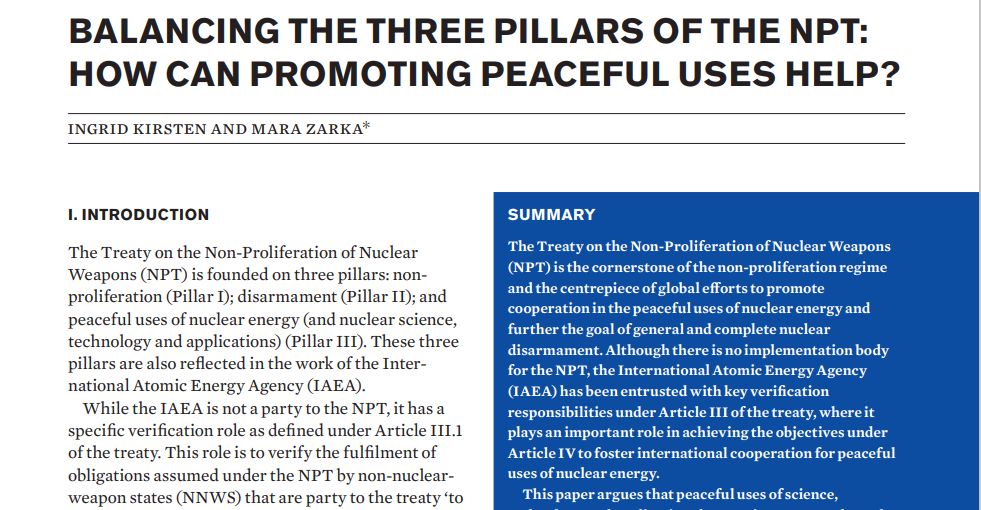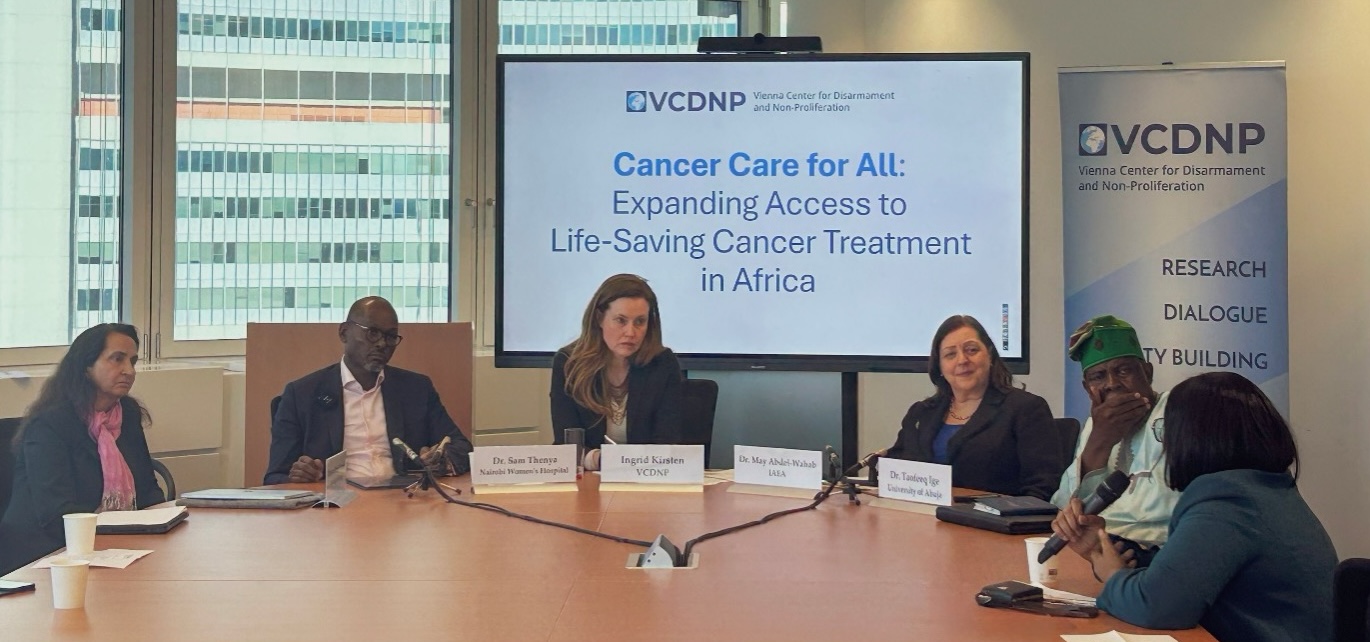
The Treaty on the Non-Proliferation of Nuclear Weapons (NPT) is the cornerstone of the non‑proliferation regime. Since the last NPT Review Conference (RevCon) the world has changed significantly. The demise of the Intermediate-Range Nuclear Forces Treaty, and the withdrawal of the United States from the Joint Comprehensive Plan of Action reached between the E3/EU+3 (France, Germany, and the United Kingdom/the EU plus China, Russia and the United States) and Iran have demonstrated the fragility of multilateral arms control treaties. The Covid‑19 pandemic, the ongoing war in Ukraine and the growing impact of climate change pose serious consequences for international security and negatively impact global financial stability as well as food- and energy security.
VCDNP’s Senior Research Associate Ingrid Kirsten and Research Associate and Project Manager Mara Zarka argue that substantial investment is required in order to realize the full potential of nuclear science, technology and applications (hereafter ‘peaceful uses’) for development. Peaceful uses provides the innovation needed to assist the global community in meeting growing development challenges, such as the increased cancer burden in developing countries, and to work towards the achievement of the UN Sustainable Development Goals.. In addition investing in peaceful uses could also serve to strike a balance between the NPT’s three pillars.
Noting that the European Union is the largest donor of development assistance, the paper suggests that the EU enhance its contribution to peaceful uses by supporting the International Atomic Energy Agency’s technical cooperation activities. Such investment is in line with the EU’s development and non-proliferation goals, and will contribute to strengthening global human security. Every effort should be made to preserve the most widely subscribed nuclear arms control treaty in history. Recognizing that peaceful uses strengthen non-proliferation will help uphold the integrity of the NPT and allow for progress to be made even during difficult times.
The paper is part of the EU Non-Proliferation and Disarmament Paper Series. The authors extend their gratitude to all the individuals interviewed and whose insights contributed to the paper significantly.



